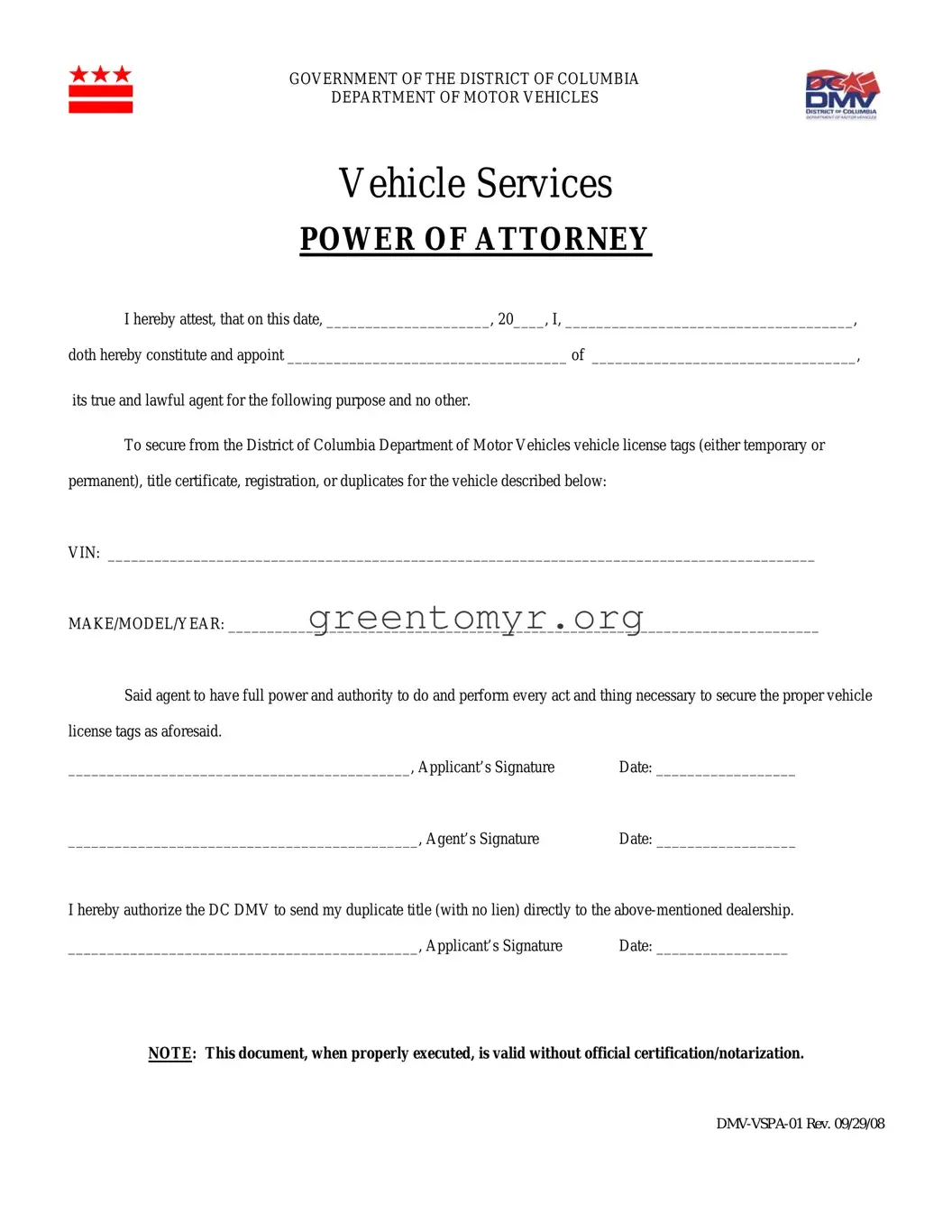The Vehicle POA (Power of Attorney) DMV-VSPA-01 form is a document that allows an individual to designate another person to handle specific vehicle-related transactions on their behalf. This authority can include things like registering vehicles, obtaining title transfers, and dealing with the Department of Motor Vehicles (DMV) for other services related to vehicle ownership.
This form is typically needed by vehicle owners who want someone else to act on their behalf for vehicle transactions. For instance, if you are unable to visit the DMV due to health issues, time constraints, or geographical barriers, you might choose to complete this form to give someone else the necessary permissions to assist you.
Completing the Vehicle POA DMV-VSPA-01 form involves these simple steps:
-
Download the form from your local DMV website or pick one up in person.
-
Fill in your personal information, including your name, address, and vehicle details.
-
Provide the name and contact information of the person you are granting power of attorney.
-
Specify the types of transactions the designated person can perform on your behalf.
-
Both you and the designated person need to sign the form to validate it.
Are there specific types of transactions I can authorize?
Yes, you can authorize a variety of transactions with the Vehicle POA DMV-VSPA-01 form, including, but not limited to:
-
Completing title transfers
-
Renewing vehicle registrations
-
Registering new vehicles
-
Obtaining duplicate titles
Does the Vehicle POA expire?
The Vehicle POA DMV-VSPA-01 form does not have a fixed expiration date. It remains effective until you decide to revoke it or until a specific condition outlined in the document is met. Always check with your state’s DMV for any time-sensitive rules regarding the POA.
What if I want to revoke the Power of Attorney?
To revoke the Vehicle POA, you will need to inform your designated representative in writing, and you may also want to notify the DMV. This can often be done through a simple revocation form or a written statement declaring that you are rescinding the power granted through the Vehicle POA DMV-VSPA-01 form. Consulting your local DMV for specific revocation procedures is a good idea.
Typically, there is no fee for completing the Vehicle POA DMV-VSPA-01 form itself. However, there might be associated costs for any transactions performed on behalf of the vehicle owner, such as registration fees or title fees that the DMV charges. Always check with your local DMV for accurate fees relevant to your situation.
The Vehicle POA DMV-VSPA-01 form is generally applicable to most motor vehicles, including cars, trucks, motorcycles, and mobile homes. If you are unsure about specific vehicle types or the regulations in your state, contacting the DMV can provide clarification.
You should submit the completed Vehicle POA DMV-VSPA-01 form along with any other necessary documentation to your local DMV office. Some offices may also allow submissions by mail or through online platforms, depending on your state's regulations. Checking the specific submission guidelines on your state's DMV website can ensure you're following the proper process.

